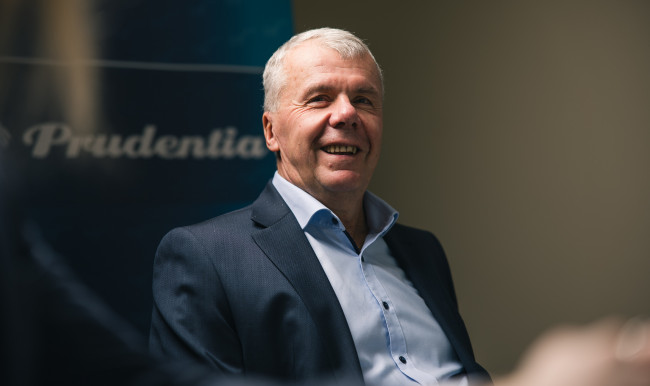
Toptech 2025: How to understand the potential of AI but keep expectations realistic?
Illar Kaasik
Partner of Prudentia Advisory
Artificial Intelligence (AI) is one of today's most talked-about technologies that promises to transform our economy and society, and it has already influenced the TopTech ranking of Estonia's most valuable technology companies in recent years. News of AI-generated content and revolutionary new solutions has generated huge excitement, but also a lot of false expectations. Many expect AI to be a miracle technology that solves all problems on its own, without human intervention. However, such an attitude can lead to disappointment and widespread scepticism if the actual results do not live up to unrealistic dreams.
Mankind's technological journey is full of new tools, but no substitute for human beings
To avoid disappointment, it is important to understand that AI is not magic, but a tool. It is a powerful tool that can automate complex and repetitive tasks, analyse large amounts of data and identify patterns that humans could not. The key to success lies in the synergy between humans and AI. History is littered with examples of new technologies that have transformed society but have never fully replaced humans. For example, the invention of the steam engine during the industrial revolution automated production processes that previously required heavy manual labour. While it reduced the need for manual labour, it created new job opportunities such as machine operators, factory engineers and maintenance technicians. The role of people changed, not disappeared. A similar pattern was repeated with the advent of electricity and computers. Electricity enabled the creation of new industries, while computers automated office work, but at the same time created a huge IT sector in constant need of new specialists.
Don't expect AI to replace humans. Rather, AI should be seen as a colleague that amplifies the capabilities of the human worker. In software development, AI helps generate code, but the developer has to review and test the code. In cybersecurity, AI identifies potential threats, but the security professional has to assess and respond to them. In accounting, AI automates routine transactions, but the accountant is responsible for the accuracy of the financial statements.
Practical steps to avoid disappointment when using AI
Setting realistic goals is the key to successful AI implementation. Start with small, concrete projects that have clear, measurable results.
- Identify bottlenecks. Find out which work processes are time-consuming and repetitive in your business. This is where AI can add the most value.
- Invest in data quality. AI models are only as good as the data they are trained on. Incomplete or incorrect data will lead to inaccurate results.
- Train your staff. Educating people about the capabilities and limitations of AI is critical. This will help reduce unrealistic expectations and encourage employees to adopt new tools.
Estonia is active in AI. Companies that are also in the TopTech ranking, such as Veriff, Starship Technologies and Pactum, are demonstrating how to successfully implement AI. AI applications can also be seen in the public sector, such as the Emergency Response Centre and the Police and Border Guard Board. This shows that AI is not just the preserve of the tech giants, but is also available to smaller countries and companies. There is only one way to move from theory to practice: start gathering experience. Just as you learn to ride a bike by trial and error, AI can be better understood through practical application. Start with a pilot project, even if it is small and seemingly insignificant. It will provide valuable insights, help you identify potential obstacles and show how AI can create real value in your business. Try, fail and learn!
The evolution of AI in the coming years
In the next 3-4 years, we can expect a real leap in AI development. Today's AI models are impressive, but the future will bring even more powerful versions. For example, text-to-video generation technologies will become more widely available, transforming the advertising, film and training industries. AI-powered personal assistants will become smarter, interacting with people more naturally and helping to organise both work and private lives. In addition, we are seeing significant developments in autonomous systems, from self-driving cars to robots that can operate autonomously in complex environments.
Most importantly, AI is becoming deeply integrated into everyday software solutions and devices. This means that AI is no longer a separate product, but an invisible part of our digital environment, making our lives smoother and more efficient. Advances in technology have always brought change and the need for new skills, but humanity's adaptability has always been key to its success.


